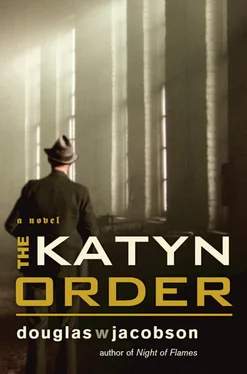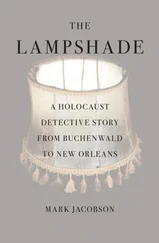“We can’t stay here,” Zeeka said, pacing back and forth in the cottage’s living area a few hours later. “We should get out now, while we have the chance.”
Hammer glanced at his watch. It was a little after seven o’clock. “The sun will set in about a half hour,” he said. “If they haven’t come by now, they certainly won’t attempt to find this place in the dark.”
“Don’t be too sure,” Zeeka said. “With two of their agents shot to death, the NKVD will be swarming over this entire area like flies on a manure pile.” She looked at Natalia and held up her hand. “I know, I know, you had no choice. Getting in their automobile would’ve been a death sentence.”
“You’re damn right,” Hammer growled. “We should take out these Bolshevik bastards every chance we get. Besides, I’m certain the villagers had both bodies buried in the forest and the auto hidden away before Rabbit and Natalia got back here.”
Zeeka glared at the big man with her hands on her hips. “And when those two agents don’t report in at the end of the day? Then what? Do you suppose their superiors are just going to go home and have their dinner?”
Hammer grabbed his rifle from the corner near the wood-box. “You two decide what to do. I’ll go help Rabbit keep a lookout.”
After Hammer left, Natalia propped her elbows on the table. A wave of guilt washed over her. “Goddamn it, I feel terrible for those villagers. Hammer is right; I’m sure they got rid of the bodies and the auto. But we know what the NKVD is like. Sooner or later they’ll show up in that village, and they’ll find out what happened one way or the other.”
Zeeka pulled up a chair and sat down facing her. “And when those poor folks have a gun pointed at their heads and their daughters are about to be raped, they’re going to lead them right here.”
Natalia slumped back in the chair. “Christ, what a mess.”
“Look, what’s done is done. If I’d been in your shoes I’d have shot those sons-of-bitches too. But right now we have to decide where to go. I don’t think we should even wait until morning. We should move out now. The AK cell in Zyrardow has a safe house. We could hide out with them for a day or two until we sort things out.”
“If we leave right after dark we should get there before dawn,” Natalia agreed. “And they have a wireless. They can send out an alert.”
22 MAY
ALMOST A WEEK had passed since the brief, unproductive meeting with General Kovalenko, and Adam was restless. Colonel Meinerz had given up after three days of waiting for Kovalenko’s office to return his calls and had joined the rest of the team in Dachau, leaving Adam alone. Before he left he had instructed Adam to stay in Berlin and work through General Parks’ staff to gain access to Sachsenhausen, but after several days of bureaucratic inaction Adam was going stir-crazy.
New American officers had arrived and taken up lodging in the former Nazi’s mansion. They were friendly enough, but spent little time there except for meals. Unlike himself, Adam assumed they had real jobs to do. The meals were another thing—heavy, gravy-laden schnitzels with dumplings and spaetzel, all prepared by Frau Hetzler from the incredible supply of food that kept arriving on U.S. Army trucks. It had been years since Adam had eaten this well, and his stomach was rebelling.
So this evening he passed up dinner, took an apple from the pantry and went out for a walk. The weather had warmed during this third week of May, and it was still light when he returned a little after eight to find a group of American officers playing bridge on the terrace. He was chatting with them when Frau Hetzler announced that he had a telephone call. Adam followed her into the house and made his way to the foyer near the front door where a silver-plated telephone stood on an ornate, inlaid-wood table. He picked up the receiver. “This is Adam Nowak.”
There was a pause, then a gruff voice said, “Kovalenko.”
Adam flinched. He had given up on hearing from the general’s office and certainly from Kovalenko himself. He took a deep breath before responding, “Good evening, General. It’s good to hear from you.”
“Have you had dinner?”
Adam consulted his watch. It was eight thirty and he wasn’t hungry. “No, I have not.”
“Come to the Adlon Hotel.” There was a click, and the line went dead.
Adam slowly placed the receiver back in the cradle. Dinner with Kovalenko? The Adlon Hotel was in the Russian sector. Should he go alone? Meinerz and the rest of the team were in Dachau. He wondered if Kovalenko knew that.
After pondering the bizarre situation a few minutes longer, Adam borrowed a Jeep from the group of Americans and drove to the Kommandatura where a Red Army officer stood next to a Russian GAZ-11 with a Soviet flag mounted on the right front fender. It was the same officer from the meeting outside Warsaw eight months earlier, the one with the scarred face and black eye patch. Adam climbed into the GAZ-11, and the officer settled behind the wheel.
Neither spoke during the short drive to the world-renowned hotel on the corner of Wilhelmstrasse and Unter den Linden, long a favorite haunt of journalists, diplomats and celebrities like Herbert Hoover, Charlie Chaplin and Marlene Dietrich. In the silence Adam examined the interior of the GAZ, running his hand across the hard leather seats. As an official staff car, it wasn’t nearly as luxurious as the Mercedes-Benz Bravo had stolen from the Germans in Warsaw. It seemed equally powerful though, but it was noisy, and the ride much stiffer, obviously designed for Russian roads.
Adam peered out the window as the automobile slowed and came to a stop in front of the massive hotel building next to the bombed-out wreckage of the British Embassy. Though still primarily intact, the majestic six-story brick façades of the hotel was blackened from a recent fire, and most of the windows were boarded up. Enormous glass lanterns—remarkably undamaged—stood atop stone pillars on either side of the main entrance, which was also boarded up.
The Red Army captain opened the auto’s rear door, and Adam stepped out. He followed the Russian through an improvised doorway a few meters from the main entrance, then down an eerily dark corridor and up a flight of stairs, the odor of charred wood hanging heavily in the stale air. They proceeded down another corridor, then entered a brightly lit dining room filled with people.
Adam gazed in astonishment as white-gloved waiters, wearing black waistcoats and red bow ties, squeezed between closely spaced tables, carrying tureens of soup and platters of sausages, potatoes, roast beef and chicken. The captain tapped his shoulder and pointed to a table at the far end of the noisy, smoky room where General Kovalenko sat at a table set for two.
The general looked up as Adam approached the table. “Welcome to the Adlon Hotel, Mr. Nowak.” Kovalenko motioned for him to sit, then picked up a carafe of red wine and filled each of their glasses. He took a long drink, draining half of the glass. “The food isn’t very good, but I’ve ordered onion soup and sauerbraten. It may take them a while.” He polished off the wine and refilled his glass.
“That will be fine,” Adam said, as he took a sip of the sweet wine. “I’m sorry Colonel Meinerz is not here to join us,” he added. “He was called to Dachau.”
The general lit another cigarette and regarded him through the smoke. “I know. Dachau doesn’t interest you?”
“It does, but my instructions are to remain here and arrange the visit to Sachsenhausen.”
They sipped the wine. Adam lit a cigarette of his own and glanced around the teeming dining room, marveling at the rich mahogany walls, patterned carpet and plumed pillars that rose to the ceiling. Each table was set with white linens, sterling silver flatware and a single rose in a cut-glass vase. The elegant room was populated mostly by Red Army officers accompanied by young German women with painted faces, incongruously dressed in evening gowns in the midst of this shattered city. “I’m surprised the hotel is still able to maintain such a dining room,” he said.
Читать дальше












